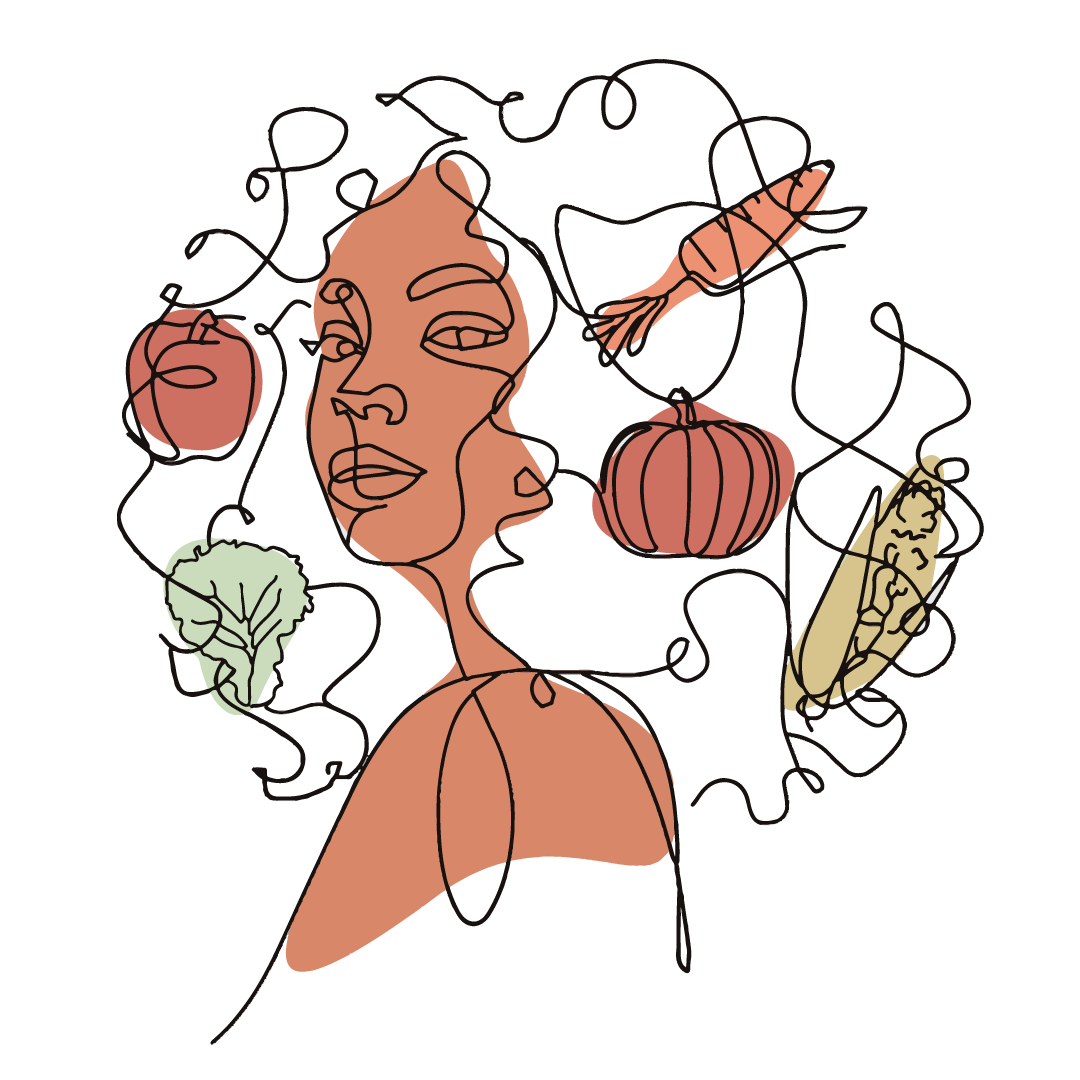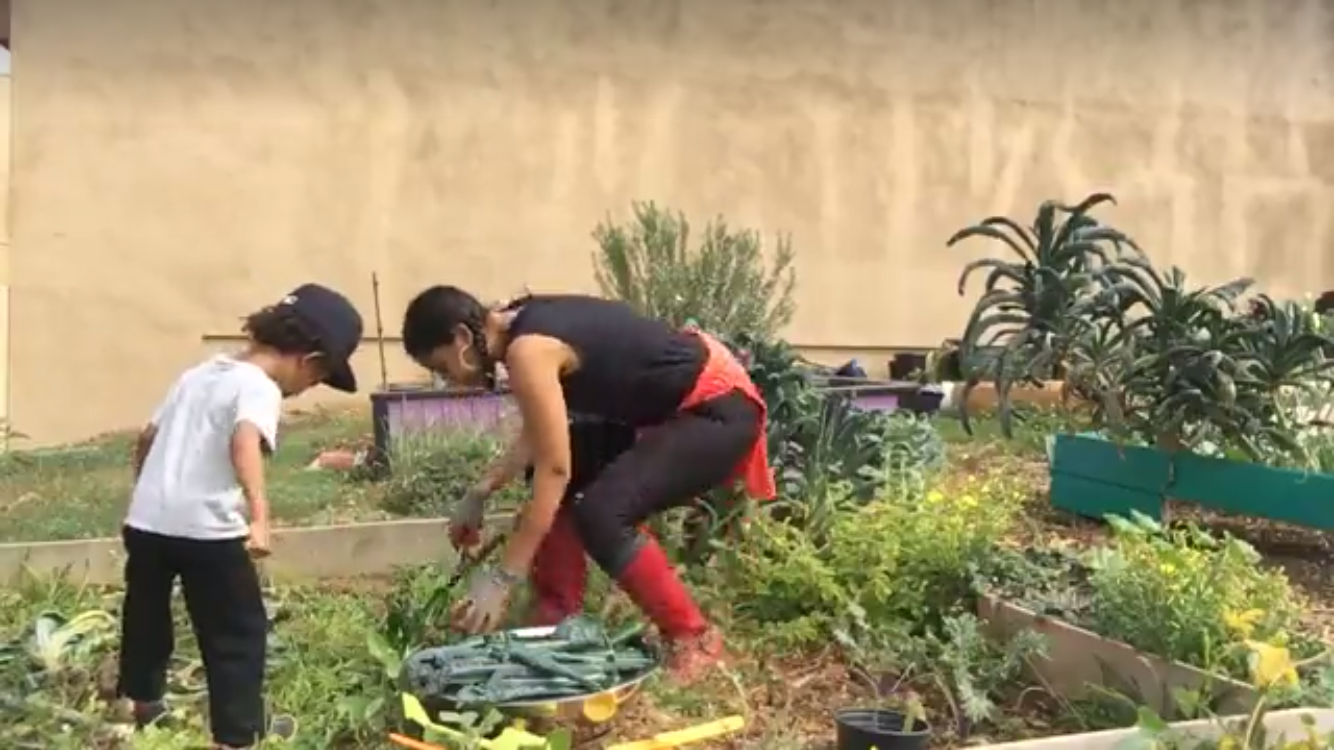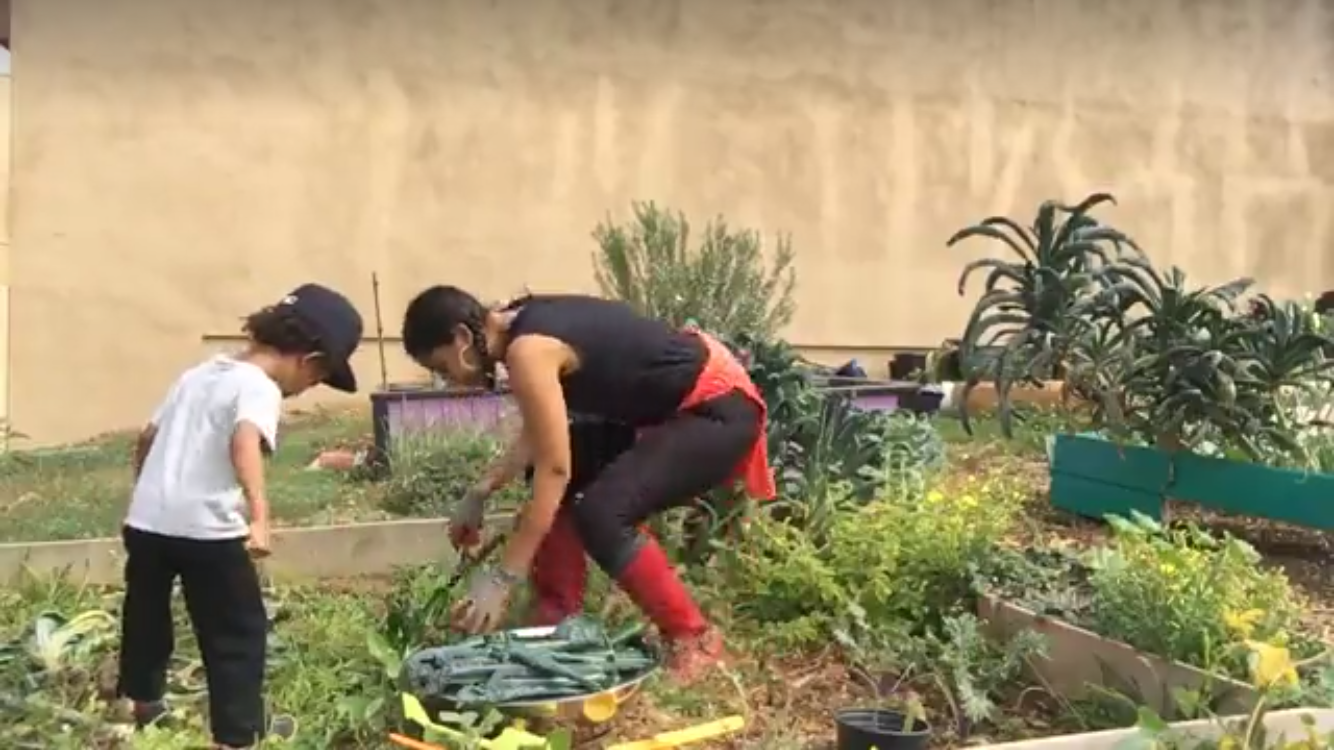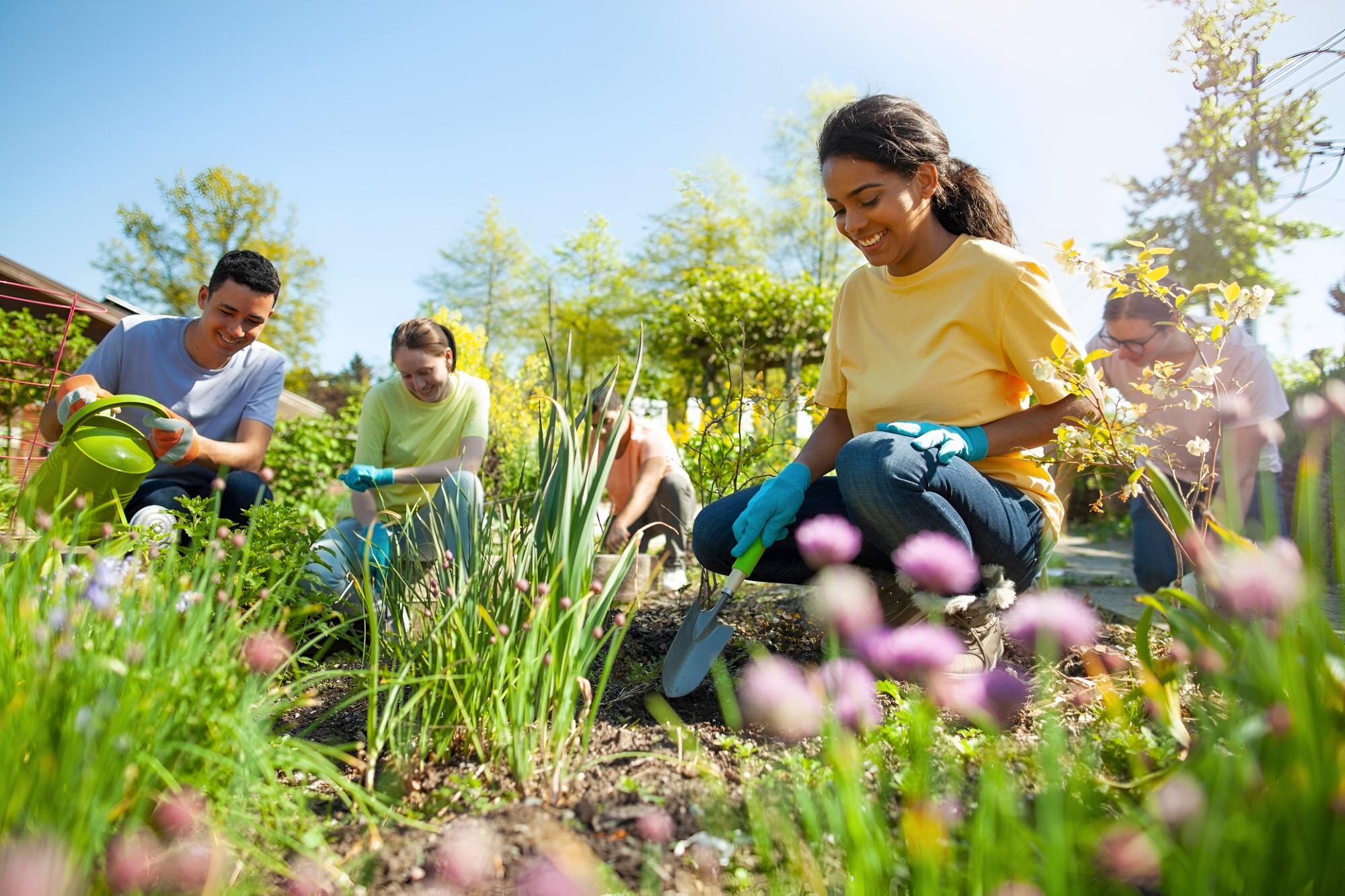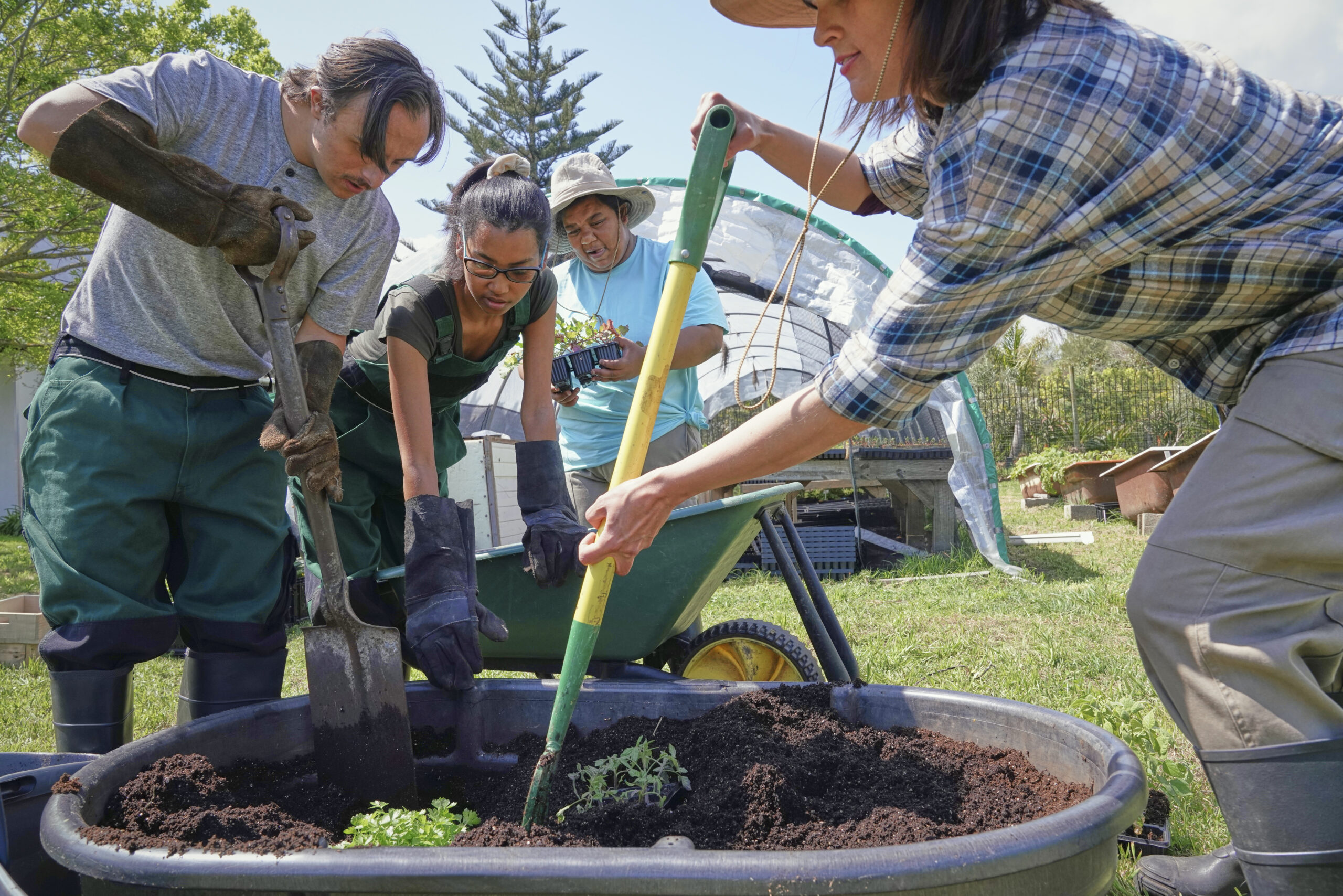Cultivating Change: How Community Gardens Boost Local Food Security
Community gardens do more than just grow vegetables—they grow hope where food access falls short. When neighbors come together to plant and tend, local food security strengthens in ways that matter most: fresh produce, shared skills, and a united community. Ready to see how sustainable gardening can bring lasting change to your neighborhood? Let’s explore the simple steps that turn vacant lots into thriving gardens filled with possibility. Learn more
Growing Together for Food Security
Community gardens serve as fertile grounds for building not just plants but robust communities. They lay the foundation for a healthier, more connected neighborhood. Let’s delve into the tangible benefits these gardens bring.
Benefits of Community Gardens
Imagine a space where fresh tomatoes and lettuce are just a few steps away. Community gardens provide local food security by offering access to fresh produce. In fact, communities with these gardens report a 20% increase in fruit and vegetable consumption. This direct access means fewer trips to the store and more nutrition on the table. Moreover, these gardens are a learning ground for sustainable practices, teaching young and old alike the importance of nurturing the soil and, by extension, their health.
Beyond food, gardens are a hub for education. Children learn where food comes from, adults discover new gardening techniques, and everyone benefits from the shared knowledge. This collective effort not only improves health but fosters a deep sense of accomplishment. Some might say, “I don’t have a green thumb,” but most people think that until they see the first sprout. Let’s explore how these gardens also cultivate stronger bonds.
Building Stronger Connections
Community gardens do more than offer fresh produce; they connect people. Neighbors who might not otherwise interact find common ground among rows of carrots and beans. These spaces become a place for sharing stories, tips, and even recipes. In urban areas, 90% of garden participants reported feeling more connected to their community.
These gardens become a melting pot of skills and cultures. Imagine a Sunday morning, where one family shares their traditional planting method, while another introduces a unique recipe involving garden-fresh ingredients. Such interactions break down barriers and build lasting friendships. When everyone pitches in, the garden flourishes, and so does the community. With this shared purpose, the feeling of isolation diminishes, and a network of support grows. Ready to see how sustainable practices keep these gardens thriving?
Sustainable Gardening Practices
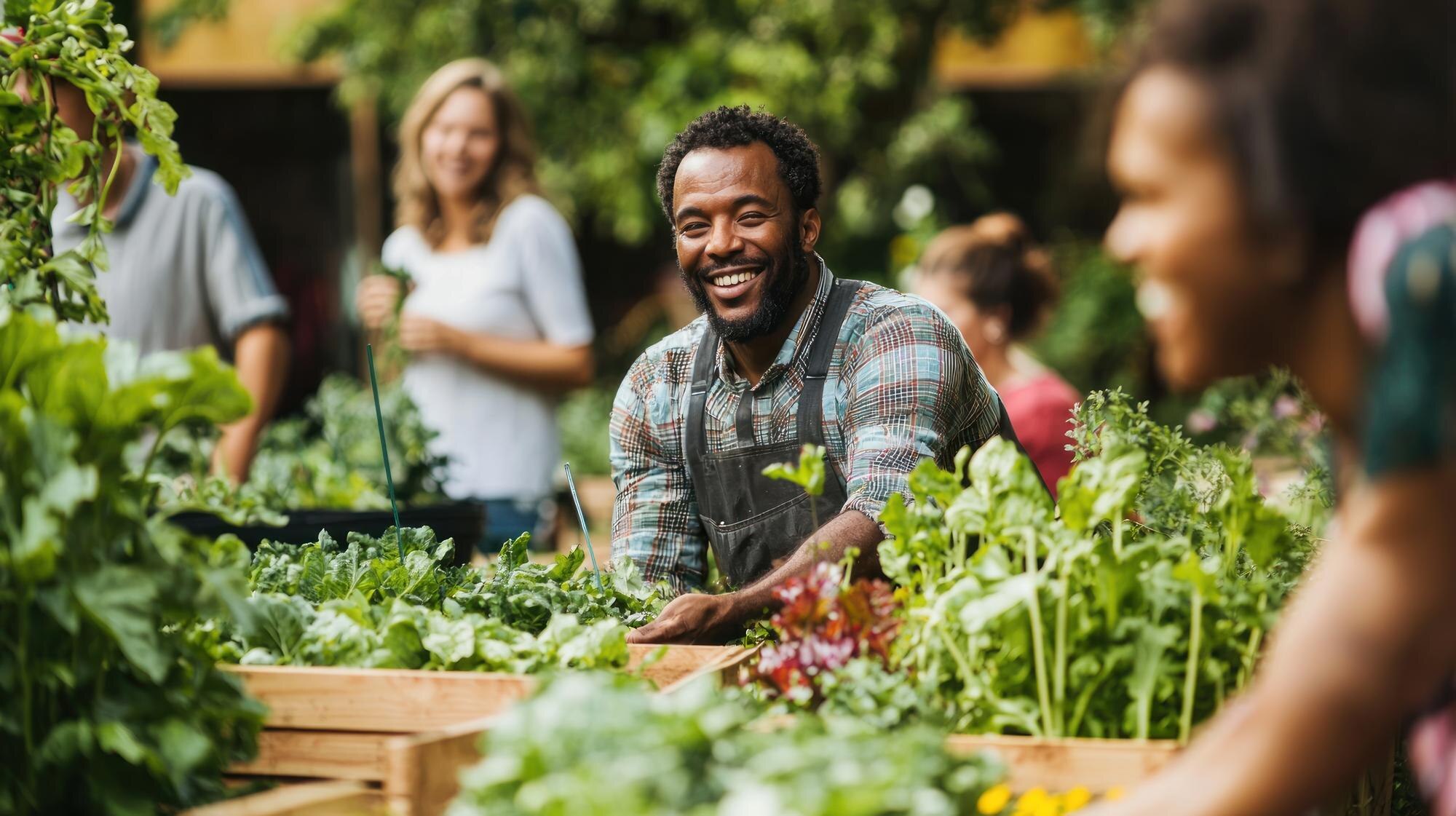
To keep gardens thriving, adopting sustainable practices is key. These methods ensure that the garden can produce abundantly year after year. Let’s explore the techniques that make this possible.
Techniques for Thriving Gardens
The secret to a lush garden lies in the soil. Healthy soil is the bedrock of any successful garden. Start by composting kitchen scraps, which enriches the soil naturally. Composting not only reduces waste but also promotes robust plant growth. Studies show that composting can improve soil quality by up to 60%.
Water wisely to conserve this precious resource. Instead of daily watering, opt for deep, less frequent watering sessions. This encourages roots to grow deeper and stronger. Mulching is another great technique. It retains moisture and suppresses weeds, keeping your garden healthy and productive.
Lastly, consider crop rotation. This practice prevents soil depletion and controls pests naturally. By rotating crops, you maintain soil health, which is vital for continuous growth. Now that your garden is thriving, let’s see how sharing knowledge elevates the experience.
Sharing Knowledge and Skills
Gardening is a journey best shared. Whether you’re a novice or a seasoned gardener, there’s always something new to learn. Community gardens are perfect for exchanging tips and tricks. For instance, a simple tip like planting marigolds can deter pests naturally, a fact often shared in garden circles.
Workshops and regular meetups offer structured opportunities to learn. Imagine a Saturday session where you learn about organic fertilizers or natural pest control. Such gatherings transform gardens into living classrooms. Everyone brings something to the table, adding value to the communal knowledge pool.
These shared experiences not only improve gardening skills but also forge a strong community spirit. Ever wondered how to start your own garden journey? Let’s dive into getting involved in local initiatives.
Getting Involved in Community Gardens

If you’ve ever thought about starting or joining a community garden, you’re in the right place. Gardens offer a unique opportunity to connect with others and contribute to local food security.
Starting Your Own Garden
Starting a community garden might seem daunting, but breaking it down into steps makes it manageable. First, identify a suitable location. Look for unused land or vacant lots in your area. Next, gather a group of interested neighbors. Discuss your vision and set clear goals.
Once you have a team, develop a plan. Consider what vegetables to plant and how to maintain the garden. Seek resources and guidance from local gardening organizations. These groups can offer invaluable advice and sometimes even supplies. Remember, starting small is okay. A few raised beds can be a great starting point. As you gain confidence, you can expand.
Joining Local Initiatives 🌱
Not ready to start your own garden? No worries! Joining an existing community garden is a fantastic way to get involved. Search for local initiatives in your area. Many communities have established gardens looking for more hands.
Participating in these gardens provides hands-on learning and a chance to meet like-minded individuals. It’s also a wonderful way to give back to your community. Your contributions, big or small, help ensure the garden thrives. Most people think they don’t have enough time, but even a few hours a month can make a difference.
By engaging in community gardens, you help boost local food security and build a stronger neighborhood. Embrace the joy of growing your own food and connecting with others. The longer you wait, the more opportunities pass by. So, grab your gloves and get started!
